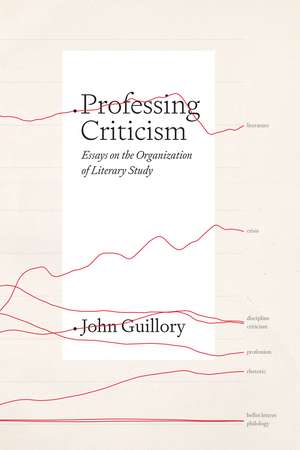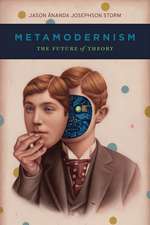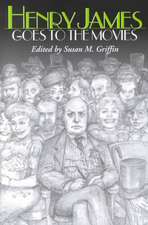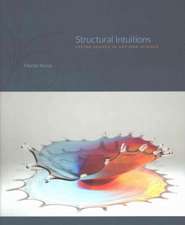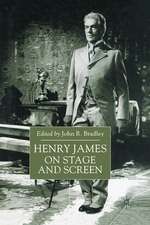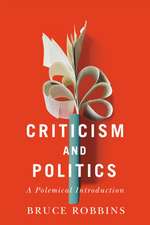Professing Criticism: Essays on the Organization of Literary Study
Autor Professor John Guilloryen Limba Engleză Paperback – 30 dec 2022
As the humanities in higher education struggle with a labor crisis and with declining enrollments, the travails of literary study are especially profound. No scholar has analyzed the discipline’s contradictions as authoritatively as John Guillory. In this much-anticipated new book, Guillory shows how the study of literature has been organized, both historically and in the modern era, both before and after its professionalization. The traces of this volatile history, he reveals, have solidified into permanent features of the university. Literary study continues to be troubled by the relation between discipline and profession, both in its ambivalence about the literary object and in its anxious embrace of a professionalism that betrays the discipline’s relation to its amateur precursor: criticism.
In a series of timely essays, Professing Criticism offers an incisive explanation for the perennial churn in literary study, the constant revolutionizing of its methods and objects, and the permanent crisis of its professional identification. It closes with a robust outline of five key rationales for literary study, offering a credible account of the aims of the discipline and a reminder to the professoriate of what they already do, and often do well.
| Toate formatele și edițiile | Preț | Express |
|---|---|---|
| Paperback (1) | 187.09 lei 3-5 săpt. | +22.68 lei 7-13 zile |
| University of Chicago Press – 30 dec 2022 | 187.09 lei 3-5 săpt. | +22.68 lei 7-13 zile |
| Hardback (1) | 594.23 lei 3-5 săpt. | +28.56 lei 7-13 zile |
| University of Chicago Press – 30 dec 2022 | 594.23 lei 3-5 săpt. | +28.56 lei 7-13 zile |
Preț: 187.09 lei
Nou
35.80€ • 37.33$ • 29.76£
Carte disponibilă
Livrare economică 27 februarie-13 martie
Livrare express 13-19 februarie pentru 32.67 lei
Specificații
ISBN-10: 0226821307
Pagini: 464
Dimensiuni: 152 x 229 x 25 mm
Greutate: 0.59 kg
Editura: University of Chicago Press
Colecția University of Chicago Press
Notă biografică
John Guillory is the Julius Silver Professor of English at New York University. He is coeditor of What’s Left of Theory? New Work on the Politics of Theory and the author of Cultural Capital: The Problem of Literary Canon Formation and Poetic Authority: Spenser, Milton, and Literary History.
Cuprins
Preface
Part One: The Formation and Deformation of Literary Study
Chapter 1 Institution of Professions
Chapter 2 Professing Criticism
Chapter 3 Critique of Critical Criticism
Part Two: Organizing Literature: Foundations, Antecedents, Consequences
Chapter 4 Monuments and Documents: On the Object of Study in the Humanities
Chapter 5 The Postrhetorical Condition
Chapter 6 Two Failed Disciplines: Belles Lettres and Philology
Chapter 7 The Location of Literature
Chapter 8 The Contradictions of Global English
Part Three: Professionalization and Its Discontents
Chapter 9 On the Permanent Crisis of Graduate Education
Chapter 10 Evaluating Scholarship in the Humanities
Chapter 11 Composition and the Demand for Writing
Chapter 12 The Question of Lay Reading
Conclusion: Ratio Studiorum
Acknowledgments
Index
Recenzii
Descriere
A sociological history of literary study—both as a discipline and as a profession.
As the humanities in higher education struggle with a labor crisis and with declining enrollments, the travails of literary study are especially profound. No scholar has analyzed the discipline’s contradictions as authoritatively as John Guillory. In this much-anticipated new book, Guillory shows how the study of literature has been organized, both historically and in the modern era, both before and after its professionalization. The traces of this volatile history, he reveals, have solidified into permanent features of the university. Literary study continues to be troubled by the relation between discipline and profession, both in its ambivalence about the literary object and in its anxious embrace of a professionalism that betrays the discipline’s relation to its amateur precursor: criticism.
In a series of timely essays, Professing Criticism offers an incisive explanation for the perennial churn in literary study, the constant revolutionizing of its methods and objects, and the permanent crisis of its professional identification. It closes with a robust outline of five key rationales for literary study, offering a credible account of the aims of the discipline and a reminder to the professoriate of what they already do, and often do well.
